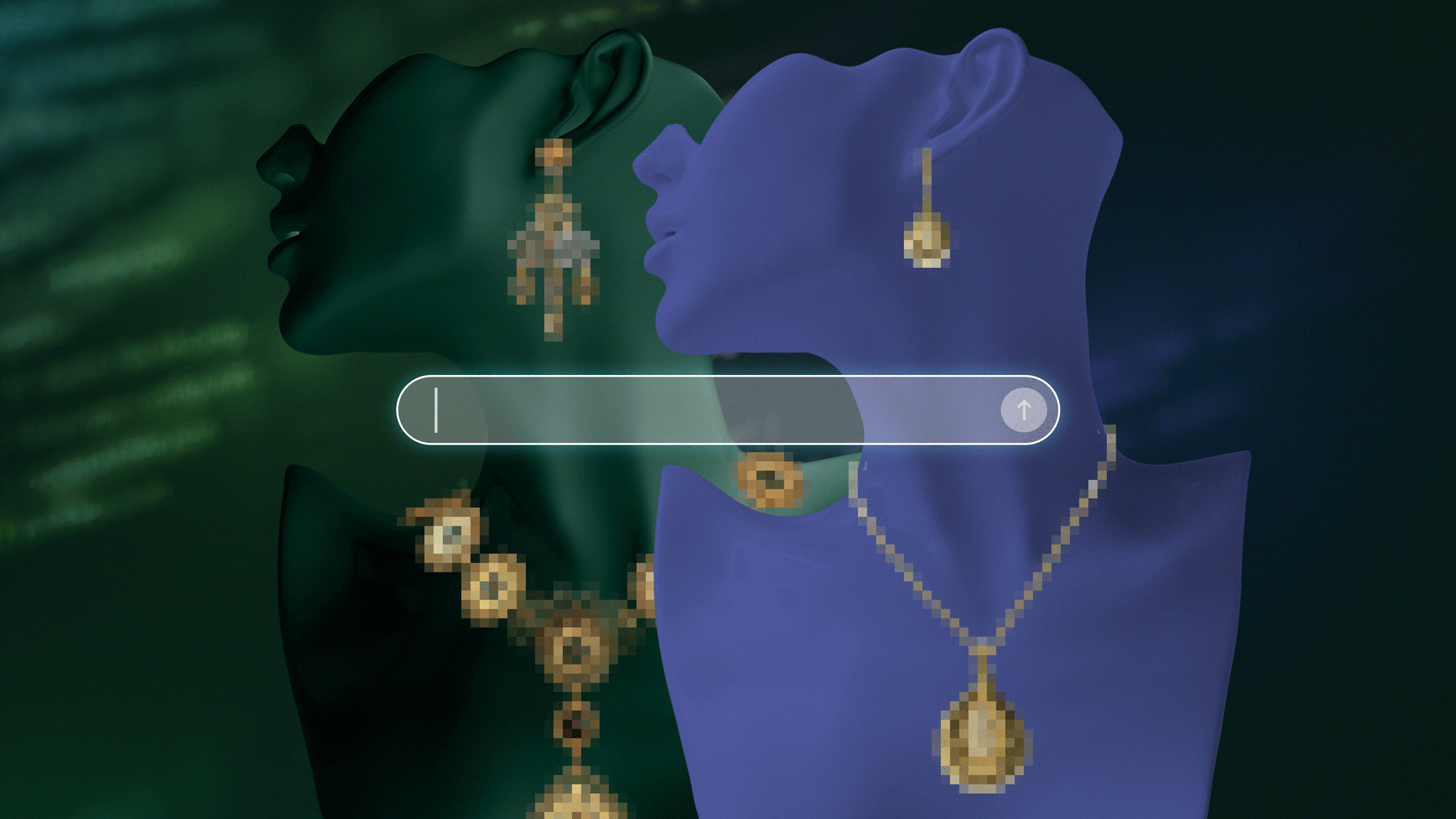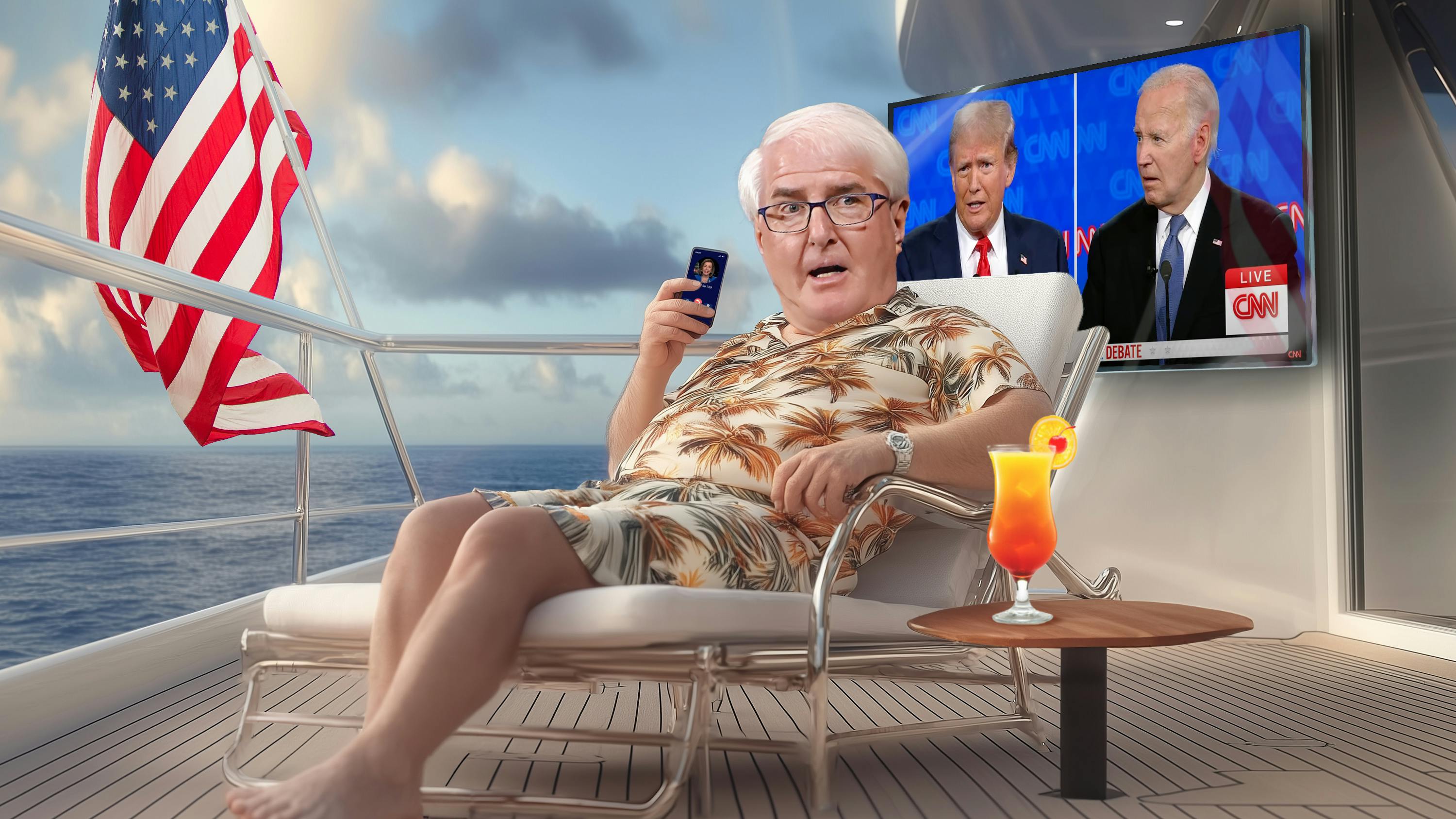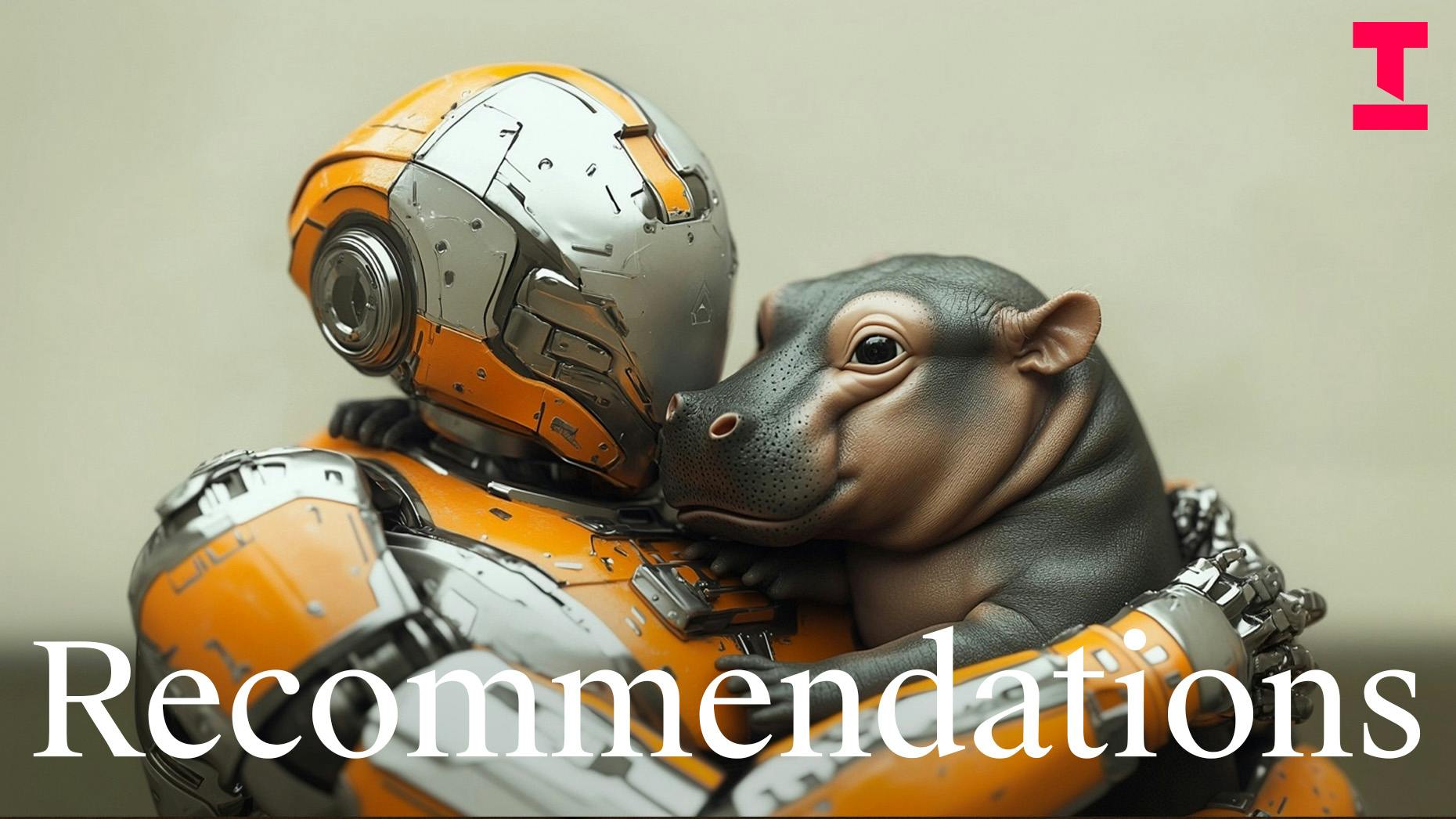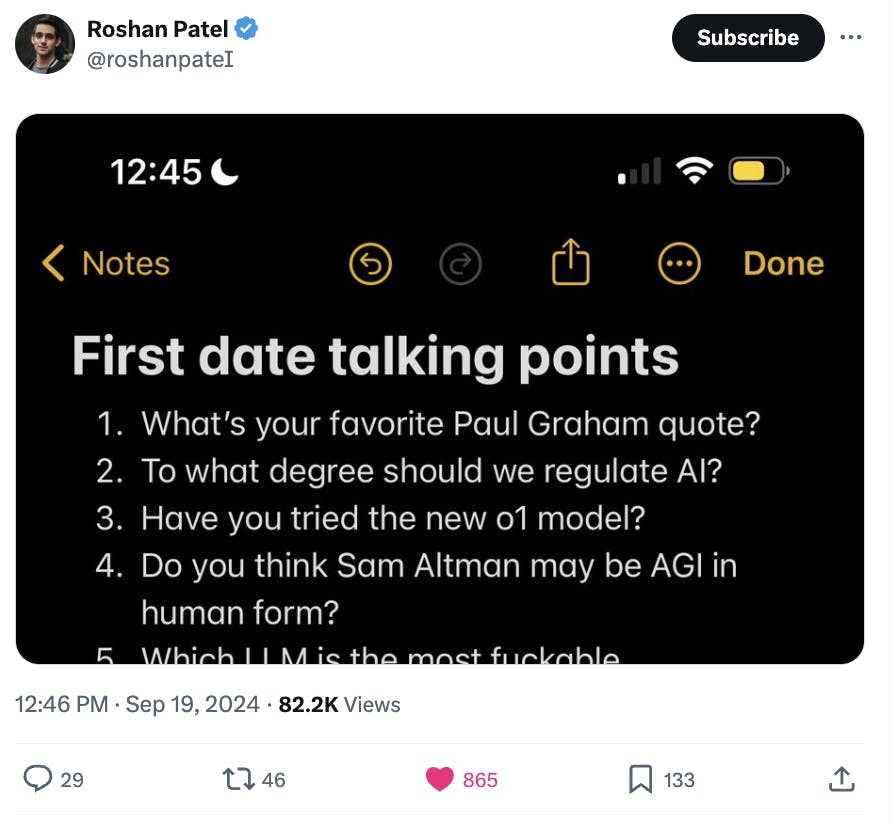| Welcome, Weekenders! In this newsletter: |
| • The Big Read: Bling it on! The AI startup turning shoppers into jewelry designers |
| • Power and Influence: How Ron Conway went from playing in local San Francisco politics to helping oust Joe Biden |
| • The Top 5: The best resources for whistleblowers |
| • Plus: Why helicopter parents are ruining their kids; AI as fan fiction; and, finally, a real Elon exposé! |
| |
| When the Warriors begin their next NBA season in October, gaggles of tech executives will sit and watch courtside, enjoying exclusive access in the Chase Center's best seats, a cordoned-off area that comes with access to all-you-can-eat sushi and a dessert bar. Indeed, at Warriors games, "it's a who's-who of Silicon Valley," said Jackson Gates, managing general partner at Manresa Ventures. "And they don't have to see another soul besides fellow courtsiders." |
| Gates, who used to work at Oakland-based Pandora, the music streamer, has in the past preferred to spend time at a much less glamorous Bay Area sports destination: the Oakland Coliseum, home of the A's baseball team. These days, the stadium, a 58-year-old barracklike place, is hardly a destination for anyone eager for a see-and-be-seen scene. (The Warriors used to play next door but moved out five years ago.) |
| Nevertheless, Gates used to take Pandora colleagues or executives at other companies to A's games to strike deals or talk strategy. The experience wasn't fancy, which Gates appreciated. "Sports used to be one of the last great equalizers—no matter how much money you had or corporate connections, you had to stand in line for a beer like anyone else," he told me. "It's not like that anymore." |
| No, it's not. And the diverging future of sports in Oakland and San Francisco mirrors the ever-widening economic and social divide between the two cities. San Francisco may still be lagging in a pandemic recovery compared to other metropolises, but when I walk around that city these days, I sense an optimism in the air. That's not the energy emanating from Oakland, which has too few companies to tax, too many embattled politicians—and now too few professional sports teams. Zero, to be exact. |
| Next week, tens of thousands of A's fans will pass under barbed-wire fencing and walk up the concrete concourses that lead to the Coliseum—for a final time. After a multidecade failed effort to build a new stadium in Oakland, team owner John Fisher, a Gap heir, is planning to move the A's 80 miles to Sacramento for a few years and then permanently out of California (to Las Vegas, sigh). |
| In the decade-plus that I've known the Bay, I've been to dozens of A's games at the Coliseum, and I went a few weeks ago when I was back in town. I sat behind home plate for just about the price of a few ballpark beers. The next day, I walked past the Warriors' new arena in San Francisco's Mission Bay neighborhood. (The OpenAI and Uber offices are nearby.) It's a clean, convenient part of town, if a little soulless. |
| Meanwhile, the A's have come to epitomize an age-old, painful question: Is a sports franchise a public good or a capitalistic pursuit? Wally Haas, the A's former owner, said recently it should be a public good: The A's should be run as an "important community asset," not like "just owning another business." Fisher has become an East Bay villain for making it more about money. |
| Joel Flory, founder of photo editing app VSCO, once wished he was the one who faced the decision of how to keep the A's in Oakland. He'd once daydreamed about VSCO becoming so successful that he had enough money to buy the A's, which Forbes estimates to be worth $1.2 billion. |
| The As were Flory's childhood favorite baseball team. He related to the "green collar" A's fan base; his dad was a construction worker and his mom was a teacher. |
| After starting VSCO more than a decade ago, he would wear the team's green-and-yellow cap to every all-hands and conference he attended. ("I was known as the guy with the A's cap," he said.) He turned down invites from venture capitalists that involved the Giants, the richer, more popular baseball team with a gleaming South of Market stadium and a prominent Oracle sponsorship. |
| In recent years, Flory had a front-row seat to the city's negotiations with the team as part of a group of Oakland business leaders who tried to support the talks. He came away frustrated with local officials' tactics over the terms of a new stadium deal. The realities of sports ownership also became clear to him: Owners have to be willing to lose some money, for the good of the community. "For sports, you want the stupid-rich billionaire, where they're so wealthy it doesn't matter," he said. |
| Flory won't be among the throngs of heartbroken fans piling into the Coliseum next week. He has been mourning his fandom since the move became official last year. He hasn't watched an A's game all season—and hasn't worn any of his A's caps. "They're all in a box," he said.—Cory Weinberg |
| |
|
 |
|
| As a man who likes jewelry for men, I frequently feel bereft of (tasteful) choice: too many dark-colored orbs on bracelets, too many cutesy, chintzy cufflinks. I hope to now find great solace in the latest startup from Mariam Naficy, who has previously started Minted, the artsy e-retailer, and Eve.com, a dot com era makeup seller. Her latest venture, Arcade, hopes to make designing bespoke jewelry a breeze by allowing everyday users to create their own using generative AI, then pairing the order with an artisan in a place like Italy or India to actually make it. Quite neat! And potentially lucrative—at least that's what investors in Arcade, including Reid Hoffman, hope. |
| Hoffman and Nacify have known each other for some time, as our Ann Gehan reports in this week's Big Read. When Nacify initially described the idea for Arcade, Hoffman insisted she had to do it. |
| "Drop everything else and do this," Hoffman told her. |
|
 |
|
| Ron Conway has been around Silicon Valley a long time. As our Josh Koehn rightly points out in this feature, Conway's scorecard is the stuff of tech land legend: Google, Facebook, Airbnb, OpenAI, Twitter, Slack—practically every consequential company that Silicon Valley has put out since the dawn of the internet. |
| He's also pretty well known as a muckety-muck in local San Francisco politics. He and former Mayor Ed Lee were close. But what's not been as widely talked about is Conway's emergence as a truly countrywide player in liberal politics, and Josh brings the details in this piece: the feud between Conway and Marc Andreessen, Conway's partnership with Nancy Pelosi, and his campaign to get Joe Biden off the Democratic ticket, launched from a Ritz Carlton war room in Paris. |
| "Ron on the warpath is an amazing thing—a sight to behold," said one Conway confidant. "He doesn't give a shit. Manners don't matter. He'll say what he thinks. He'll wake up at five in the morning and be on the phone all day long." |
|
 |
|
| I like to think that journalists and corporate whistleblowers share the same mission: Speak truth to power. (That's why the two groups often partner.) I'm sure some in Silicon Valley don't appreciate how both groups like to spill corporate secrets, but it's incredibly worthwhile when it sheds light on some wrongdoing, which, of course, can harm customers and investors alike. Our Paris Martineau has assembled a guide for the best consiglieres and other resources a whistleblower could use. |
| Abram Brown, editor of The Information's Weekend section, has overserved himself on too much Moo Deng. You can reach him at abe@theinformation.com or find him on X. |
| |
 |
| Following: Gordon and the Digigordan |
| A few years ago, I wrote about the rise of Gordon Ramsay's corporate empire, which, then as now, was mostly TV shows and branded restaurants. I met him in Las Vegas, where he had several restaurants, then followed him to Los Angeles, where he was shooting the finale of the latest "MasterChef Junior." In real life, he's not quite as crazy as he appears on screen, but it's not all an act: He's a bit of a nut. At one point, we half-sprinted across the first floor of Caesars Palace to dodge a growing group of fans. |
| Over the last couple of days, some videos of Ramsay have gone viral, and they show the chef in truly wild settings: his apron aflame, his chef's toque traded for a sombrero, a lobster affixed to his, uh, crotch. It took me a couple seconds longer than I'd like to admit before I realized they were AI generated (through software from Hailuo AI, a Chinese software company). That's partly because, well, they're outrageous fake clips of an outrageous real personality. It's the combination of the two that makes for the most deceptive AI videos. |
| But I'm not here to tsk-tsk-tsk about misinformation or copyright infringement. These videos aren't hurting anyone; they aren't going to make Ramsay's empire crumble. They're obviously made by some real Ramsay stans: I wonder if we should start thinking about (relatively) harmless AI videos like these just as we do traditional fan fiction.—A.B. |
| Listening: Why Kids Should Play in the Road |
| Last time I left off with Emily Oster, the Brown University economist, much of America was outside her home with pitchforks: She was advocating for kids to get back to school pronto—a call she made early: July 2020. |
| "I basically said what every parent in America was saying and got crucified," Oster acknowledges as she settles into hosting a new podcast, "Raising Parents." As the pod's name suggests, the show is about parenting—modern parenting—and what it has done to America's children. With guests like bestselling author Jonathan Haidt to aid her, Oster is out to convince parents that much of what they think is wrong is in fact at least partially correct—and that they needn't worry so much. More to the point, Oster argues, they can't worry so much, because it's eliminating key learning experiences from children's lives; if they live in a bubble, they live less fulfilling lives. Her takes are fascinating and likely infuriating for many. Perhaps the highest compliment I can pay "Raising Parents" is that I dig the show, and I don't even have any kids myself.—A.B. |
| Reading: Not Just Another Twitter Book |
| Just a few pages into reading Kate Conger and Ryan Mac's new book "Character Limit" (Penguin Press), I realized I was attracting stares from my fellow subway passengers because my jaw had literally dropped. In the remarkable opening, Musk hurls a four-letter word that begins with an F at an employee who dares to offer feedback. It's one of many scenes throughout the book that depicts the billionaire's erratic behavior in astounding detail. |
| I know, I know. You think you've heard alllll this drama before—especially with the tidy pile of other Twitter and Musk books published in the past year or so, including, most prominently, Walter Isaacson's "Elon Musk" biography. Actually, Isaacson's work is more like a hagiography, and "Character Limit" is everything his book isn't, full of rich details that give you a sense Mac and Conger really know who Musk is. |
| Mac and Conger, a pair of New York Times journalists, don't shy away from the unflattering. They delve into the feuding mothers of Musk's many children; Musk's baffling insistence on toting a celebrity DJ along to meetings; and the time when a Musk lawyer told employees that Musk doesn't care about breaking laws. "That is insane stuff that takes time—months, if not more than a year—to filter out to reporters' ears," said Mac. "We were lucky enough to be there waiting to collect it all."—Julia Black |
| |
|
 |
| Results may vary. |

0 comentários:
Postar um comentário